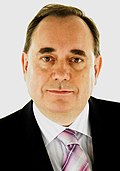
Back Eleccions al Parlament Escocès de 2011 Catalan Parlamentswahl in Schottland 2011 German Elecciones parlamentarias de Escocia de 2011 Spanish 2011ko Eskoziako Legebiltzarrerako hauteskundeak Basque Élections législatives écossaises de 2011 French Taghadh Albannach 2011 Scots/Gaelic Eleccións ao Parlamento de Escocia de 2011 Galician Elezioni parlamentari in Scozia del 2011 Italian Parlamentsvalget i Skottland 2011 NB Eleições legislativas na Escócia em 2011 Portuguese
| ||||||||||||||||||||||||||||||||||||||||||||||||||||||||||||||||||||||||||||||||||||||||||||||||
All 129 seats to the Scottish Parliament 65 seats needed for a majority | ||||||||||||||||||||||||||||||||||||||||||||||||||||||||||||||||||||||||||||||||||||||||||||||||
|---|---|---|---|---|---|---|---|---|---|---|---|---|---|---|---|---|---|---|---|---|---|---|---|---|---|---|---|---|---|---|---|---|---|---|---|---|---|---|---|---|---|---|---|---|---|---|---|---|---|---|---|---|---|---|---|---|---|---|---|---|---|---|---|---|---|---|---|---|---|---|---|---|---|---|---|---|---|---|---|---|---|---|---|---|---|---|---|---|---|---|---|---|---|---|---|---|
| Turnout | Constituency - 50.5% Regional - 50.5% | |||||||||||||||||||||||||||||||||||||||||||||||||||||||||||||||||||||||||||||||||||||||||||||||
| ||||||||||||||||||||||||||||||||||||||||||||||||||||||||||||||||||||||||||||||||||||||||||||||||
 The map shows the election results in single-member constituencies. The additional member MSPs in the 8 regions are shown around the map. * Indicates boundary change - so this is a nominal figure | ||||||||||||||||||||||||||||||||||||||||||||||||||||||||||||||||||||||||||||||||||||||||||||||||
| ||||||||||||||||||||||||||||||||||||||||||||||||||||||||||||||||||||||||||||||||||||||||||||||||
| This article is part of a series within the Politics of the United Kingdom on the |
| Politics of Scotland |
|---|
 |
The 2011 Scottish Parliament election was held on Thursday, 5 May 2011 to elect 129 members to the Scottish Parliament.
The election delivered the first majority government since the opening of Holyrood, a remarkable feat as the Additional Member System used to elect MSPs was allegedly originally implemented to prevent any party achieving an overall parliamentary majority.[1] The Scottish National Party (SNP) won a landslide of 69 seats, the most the party has ever held at either a Holyrood or Westminster election, allowing leader Alex Salmond to remain as First Minister of Scotland for a second term. The SNP gained 32 constituencies, twenty two from Scottish Labour, nine from the Scottish Liberal Democrats and one from the Scottish Conservatives. Such was the scale of their gains that, of the 73 constituencies in Scotland, only 20 came to be represented by MSPs of other political parties. Scottish Labour lost seven seats and suffered their worst election defeat in Scotland since 1931, with huge losses in their traditional Central Belt constituencies and for the first time having to rely on the regional lists to elect members within these areas. They did, however, remain the largest opposition party. Party leader Iain Gray announced his resignation following his party's disappointing result. The Scottish Liberal Democrats were soundly defeated; their popular vote share was cut in half and their seat total reduced from 16 to 5. Tavish Scott announced his resignation as party leader shortly after the election.[2] For Scottish Conservatives, the election proved disappointing as their popular vote dropped slightly and their number of seats fell by 2, with party leader Annabel Goldie also announcing her resignation.[3]
During the campaign, the four main party leaders engaged in a series of televised debates, as they had in every previous general election. These key debates were held on 29 March (STV), 1 May (BBC), and 3 May (STV). The results of the election were broadcast live on BBC Scotland and STV, on the night of the election.
It was the fourth general election since the devolved parliament was established in 1999 and was held on the same day as elections to the National Assembly for Wales and the Northern Ireland Assembly, as well as English local elections and the UK-wide referendum on the alternative vote.
- ^ Newman, Cathy (6 May 2011). "SNP wins majority in Scottish elections". channel4.com. Archived from the original on 12 July 2011. Retrieved 12 July 2011.
- ^ "Scots Lib Dem leader Tavish Scott quits post". BBC News. 7 May 2011. Archived from the original on 20 May 2011. Retrieved 20 June 2018.
- ^ "BBC News - Scots Tory leader Annabel Goldie announces resignation". BBC. 24 April 2009. Archived from the original on 10 May 2011. Retrieved 9 May 2011.




